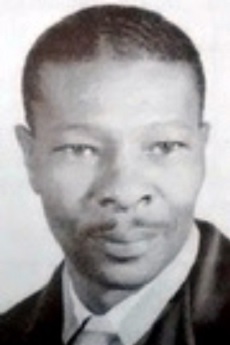Lamar Allen facts for kids
 |
|||
| Biographical details | |||
|---|---|---|---|
| Born | November 25, 1914 Pine Bluff, Arkansas |
||
| Died | May 16, 1989 (aged 74) Los Angeles, California |
||
| Coaching career (HC unless noted) | |||
| 1946–1949 | Arkansas AM&N | ||
| Head coaching record | |||
| Overall | 17–19–5 | ||
| Accomplishments and honors | |||
| Awards | |||
|
Baseball career |
|||
| Center fielder | |||
|
|||
| debut | |||
| 1940, for the Birmingham Black Barons | |||
| Last appearance | |||
| 1940, for the Birmingham Black Barons | |||
| Teams | |||
|
|||
Lamar "Buddy" Allen (born November 25, 1914 – died May 16, 1989) was an American sports figure. He was known for playing American football and baseball. He also worked as a football coach.
Allen played as a center fielder in the Negro leagues. Later, he became a head football coach. He coached at Arkansas Agricultural, Mechanical & Normal College. This school is now called the University of Arkansas at Pine Bluff.
Early Life and High School Football
Lamar Allen was born in Pine Bluff, Arkansas. He grew up loving sports. He played football for Pine Bluff Merrill High School. This was a school for Black students during a time when schools were separated by race.
Allen played as a "back" on the football team. His team was very good. They won national championships in 1932 and 1933. These were his freshman and sophomore years. Even white newspapers in Arkansas wrote about his amazing skills.
Playing Baseball in the Negro Leagues
Besides football, Allen was also a talented baseball player. In 1940, he played professional baseball. He was a center fielder for the Birmingham Black Barons. This team was part of the Negro leagues.
The Negro leagues were professional baseball leagues. They were created for African American players. This was because they were not allowed to play in Major League Baseball at that time.
Coaching College Football
After his playing career, Lamar Allen became a football coach. He was the head coach for the Arkansas AM&N Golden Lions. He coached for four seasons. These seasons were from 1946 to 1949.
During his time as coach, his team had a record of 17 wins, 19 losses, and 5 ties. He helped guide young athletes. He made a lasting impact on college football.
 | William M. Jackson |
 | Juan E. Gilbert |
 | Neil deGrasse Tyson |

